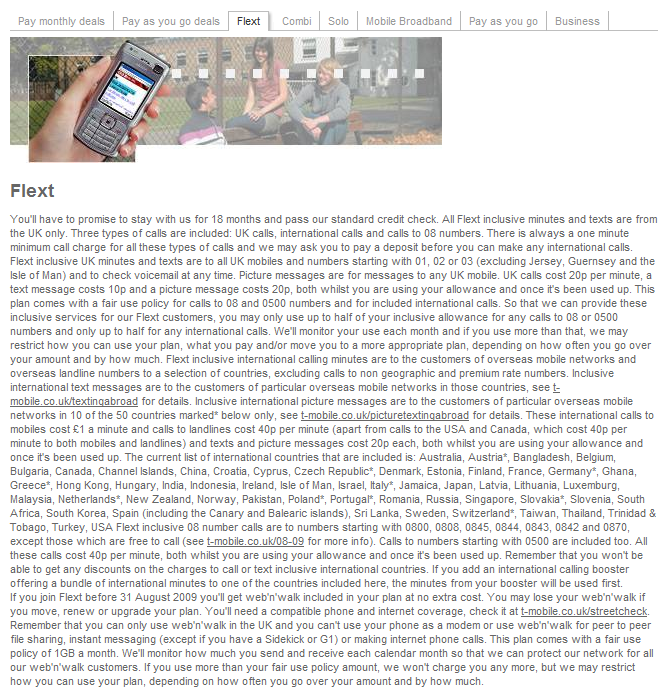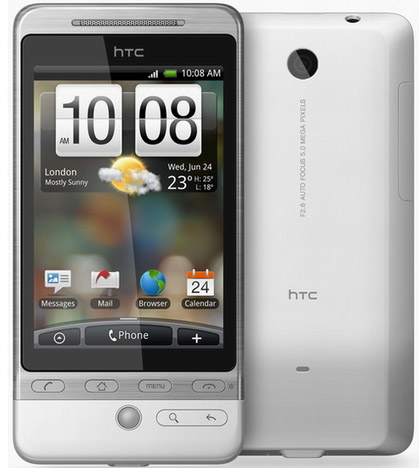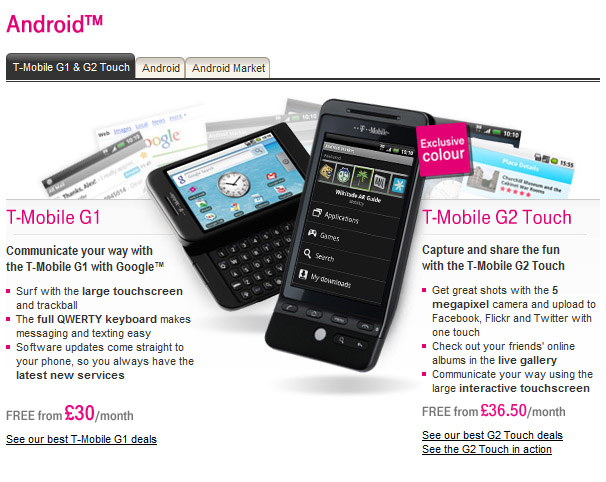It’s no surprise to many of you that companies are incredibly sneaky with what they put in their terms and conditions. They commonly advertise something for free and then put a small asterisk (*) at the end. The asterisk refers to a note at the bottom of the page which is almost always unreadable and usually explains that the offer isn’t technically free and that to get the product to free you need to sign over the deeds of your house!
Last week I got my own back though. Orange mobile decided to increase the rate of their 087 call prices and internet browsing rates. However, by doing so they were changing the terms and conditions which meant that I was within my rights to cancel the contract, which I obviously did because I had 4-5 months left on it.
After a day or so looking at phones, I decided on the HTC Hero, which is being sold in the UK via T-Mobile as the G2 Touch (Orange actually have it as well but their deal sucks).
I was checking the terms and conditions today about the contract and the cost of calls etc. And it hit home how sneaky companies are with their terms and conditions are. They always quote terms and conditions when something is wrong and you want a refund, better service or improved contract but they do their utmost to make sure that people don’t read their terms and conditions.
Have a look at the sales page for the G2 :
Notice how clear everything is. The colourful image, the large font, the use of lists to present information simply and clearly to the potential customer. As a blogger, I have read lots of articles about this. It allows the reader to digest the information more easily and presents the facts in a way which which is easier for the brain to remember.

Compare this to their terms and conditions page below. The font is incredibly small and there are no paragraph breaks whatsoever. This makes it not only incredibly difficult to read, it also makes it very difficult for the human brain to digest the information because the text is not broken down into different segments.
The problem in the UK is that these techniques are perfectly legal. It’s not lying to the customer but these methods hardly present all the information they must know in an honest way.
The comments left on the orange cancellation article highlight that customer service reps are happy to lie to customers anyways. Many people reported Orange reps saying that they must send their phone back if they cancel their contract, even though their own terms and conditions state that the phone is not part of the contract (it is in effect, a gift to entice you to sign the contract).
Word of warning to all of you : Take the time to read the terms and conditions when you sign up to any monthly contract. I know it’s a real pain in the ass but it could save you a lot of hassle in the future. :)


